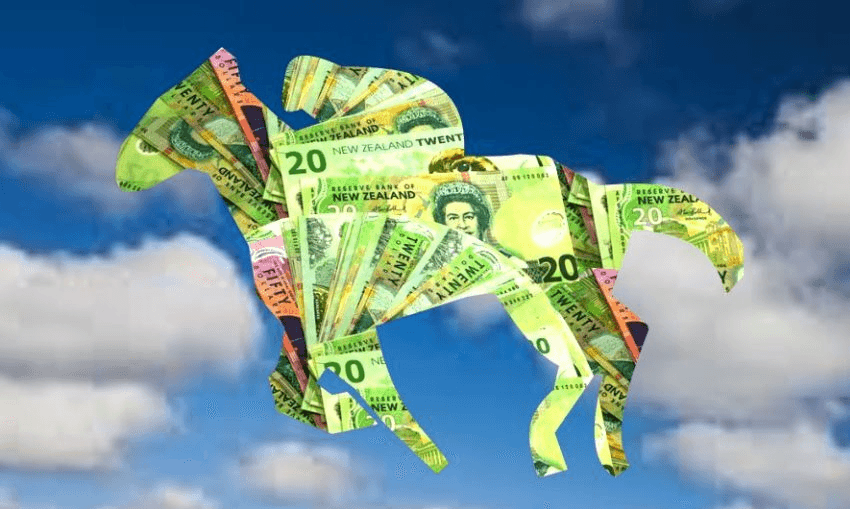Political donations are back in the news in a big way, and many feel that the system needs a complete overhaul. So how might that work? Here’s a collection of perspectives.
When news broke this morning on Radio NZ that the racing industry had donated heavily (and anonymously) to NZ First, the response fell into two broad categories.
The first of those was that it was a sign of a really malign form of party financing. In his role as racing minister, NZ First leader Winston Peters has been an incredibly strong supporter of the industry, both in government funding and as an advocate for the sector. The question then has to be asked – was that support bought in the form of anonymous party donations?
The second category of response broadly disagrees. As Winston Peters has long been an advocate for the racing industry, why should it be surprising that those in the industry would personally support him as a politician? And shouldn’t they be able to show that support in the form of a donation? Political parties exist to represent interests, like the Labour Party being receptive to the concerns of the union movement, for example.
With that in mind, we’re going back into our archives and resurfacing three arguments that have been made on this site about political donations. Each of them takes a specific situation, and then takes a wider look at how donations interact with the political system.
Leroy Beckett: massively reduce the threshold by which donations can be made anonymously.
Beckett was writing in relation to allegations from former National MP Jami-Lee Ross, who said that he had been ordered to break up a $100,000 donation into smaller chunks so that it could come in under the declaration threshold. He argued that with the vast majority of political money being donated anonymously, there needed to be a series of urgent changes to the system so that such a tactic wouldn’t be possible. His short-term fixes were:
- All donations over $1,500 should be declared and the donors named.
- Loopholes that allow fundraising through trusts, dinners, and charity auctions to remain anonymous should be closed.
- Donations should be publicly disclosed in real time, when they are made, to allow greater and immediate scrutiny.
“Introducing those changes would have an immediate impact on the transparency of our political system, allowing much greater scrutiny of who has the ability to influence the politicians elected to represent us.”
Liam Hehir: the case for anonymous political donations
Hehir argued that mandatory anonymity might in fact make for a much healthier democracy. The crucial point of his argument was that all parties would be required to operate a blind trust for donations, and the parties themselves would not know who was donating – and so wouldn’t know who they theoretically owe favours to. And his argument also took on the dimension of the right of anyone to make a contribution to politics.
“Requiring disclosure for political donations is an inherently intrusive act. If people want to use their own money to support a cause they care about, that’s really their business. Requiring them to disclose it is an invasion of their privacy that would be intolerable in most other circumstances.
“Furthermore, public exposure can limit support for unpopular, but just, causes. Laws requiring disclosure were used to intimidate opponents of Jim Crow in the American South, for example. Whether people like it or not, there is a free speech issue involved.”
Geoff Simmons: hard caps on donations are anti-democratic
The Opportunities Party leader was writing in response to a Green Party proposal that a hard cap on donations should be put in place at $35,000. Simmons argued that to do so would pull the ladder up behind existing parties, so that new parties would never be able to break in.
“Cutting out large donations would effectively force political parties outside parliament to source all funding from their membership. This could be seen as a good thing, forcing parties to build a popular movement. After two years of operation The Opportunities Party already has around 4,000 members, compared to the likes of Labour with an estimated 10,000 members. We continue to build our numbers, but it would still be very challenging to raise the kind of money needed to run a credible campaign from outside parliament solely from members.
“Much of politics is a matter of momentum. People will get behind something if they see it working. Retail developments operate on the same principle – they rely on large ‘anchor’ retailers to invest in a development, then others follow. The same principle applies for political parties; large donors are one of the few ways to get momentum.”

